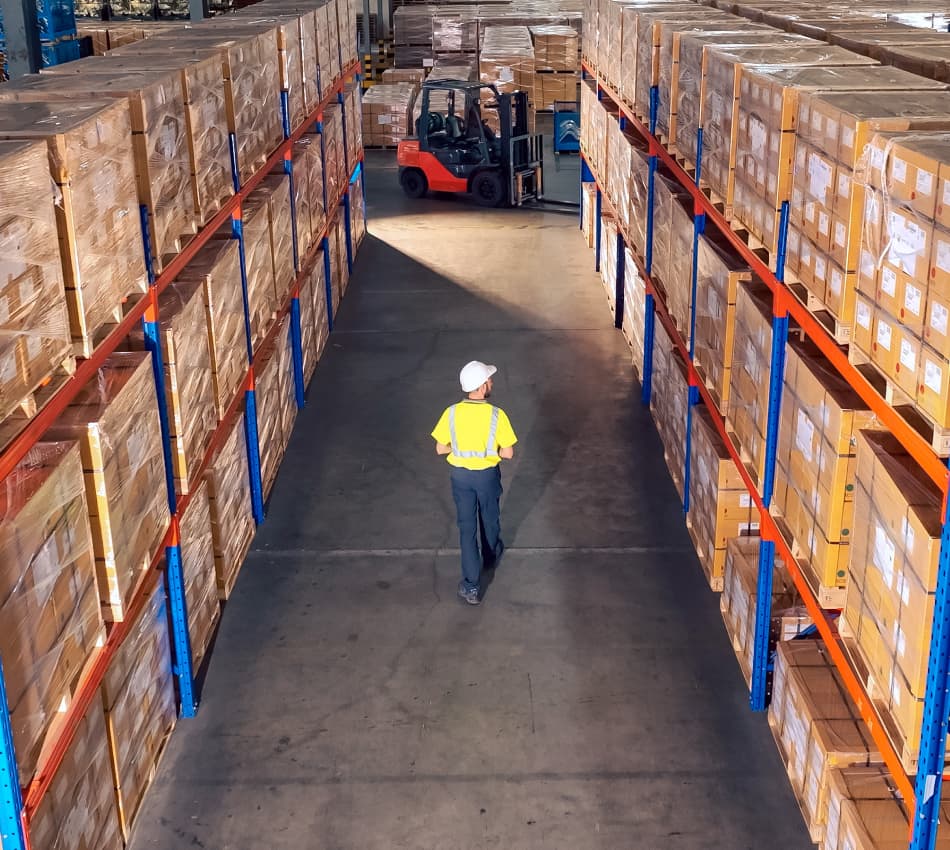Rising costs for storage space and equipment, combined with supply chain disruptions, have necessitated a change in the way retailers operate. Expanding your physical footprint is not cost-effective, neither is trying to take on multiple roles in the supply chain. Many ecommerce businesses are turning to third-party logistics (3PL) companies for help.
Outsourcing is not a new concept—what’s changed is the technology that makes it possible. Modern communications, tracking, and shipping are faster than ever. Online shopping volume is also reaching a new peak every year. Third-party logistics companies exist because these factors create a greater need for them. If you’re in ecommerce, 3PL outsourcing could be worth looking into.
What is third-party logistics, a.k.a. 3PL?
Third-party logistics, also known as 3PL, is a business classification for companies that can handle inventory management, warehousing, order fulfillment, and other tasks related to the processing and shipping of your products. When used effectively, 3PL is inserted into the supply chain to help your company become more scalable.
One common example is the assembly and kitting of the products your company sells to consumers. Without 3PL, those products are shipped to your facility to be assembled and packaged for final shipping. 3PL takes that out of your hands. The manufacturer ships directly to the third-party company. They assemble, kit, and ship to your end consumer. Most 3PLs also handle reverse logistics, like returns and exchanges.
The benefits of working with a third-party logistics company
Competition is fierce in the ecommerce space. Margins weren’t high to begin with, and they’ve been compressed even further by inflation. Price wars are common, despite the negative effects they have on the combatants. Using 3PL can be a solution to either of these dilemmas. It can make your company more efficient so you can set everyday competitive prices.
3PL simplifies inventory management because it takes the physical tasks out of your hands. Your people will no longer need to count boxes—that’s a job for 3PL. You also don’t need to store those boxes, so eliminate the cost of warehouse space and the additional people you’d need to hire to manage and work in that space. How much money could that save you?
Reduced costs are only one of the advantages of using 3PL. There are also benefits your customers will enjoy, like reduced shipping times, increased availability in previously underserved regions, and prompt service on returns and customer service issues. The best 3PL firms specialize in these aspects of your shipping and receiving operations.
Third-party logistics vs. freight forwarding
3PL firms are full-service managers of your shipping and receiving operations. Freight forwarders have one responsibility: to move products from one location to the next. Third-party logistics companies can receive products from the manufacturer, assemble and package them, ship them to your customers, track shipments, and manage returns.
Freight forwarding is often used in international shipping, where packages need to go through several checkpoints or customs inspections. Freight forwarders in your destination country may be more capable of handling the final delivery than a local 3PL firm. In some cases, the third-party logistics company will hire a freight forwarder as part of their service.
Third-party logistics vs. dropshipping
At first glance, 3PL looks a lot like dropshipping. The difference is in the path a product takes from the manufacturer to the consumer. With dropshipping, products go directly from the manufacturer to the consumer. With 3PL, the product is shipped to a 3PL warehouse or fulfillment center and then sent to the consumer.
Why would you add the extra stop in the supply chain? It’s simple: Certain products can be shipped intact from the manufacturer. Others may need assembly or packaging before they can be sent to their destination. Dropshipping is good for the former scenario but not the latter. 3PL may also expand your delivery range and reach places the manufacturer doesn’t.
Should your ecommerce business use 3PL?
Hiring experts to do the work they specialize in is usually a good idea, but every business is different. The following situations are common scenarios when ecommerce companies most often use 3PL. Do any of these describe your business scenario?
High volume of orders
Processing a high volume of orders can overwhelm your internal staff. It gets particularly challenging when the number of orders increases rapidly. You’re not equipped for that type of scale, but a 3PL firm is. They specialize in helping your business scale.
Need to offer fast shipping
Can you offer next-day delivery like Amazon does? Most ecommerce businesses can’t, at least not consistently and certainly not without a significant price markup. 3PL won’t make you an Amazon competitor, but they will help you increase your shipping speed to boost customer satisfaction.
Not enough space to store inventory
Maintaining a massive physical warehouse space is not a cost-effective way to do business. There will come a time when you need to expand your physical footprint or outsource to a 3PL company to store inventory. Do the math—it’ll be obvious which option makes more sense for your business.
Overhead costs too high
Assigning your storage and shipping tasks to a third-party logistics firm will cut your overhead down by a significant amount. Outsourcing those pieces of your operations can give you more time and money to focus on improving your products, expanding your offering, and finding unique ways to personalize your customer experience.
Want to focus on scaling business
Growth is difficult if your company can’t scale. A common example is when the number of orders increases and your current staff can’t handle the volume. That’s when 3PL can offer you a solution, enabling you to scale operations as orders keep rolling in.
High-yield business checking built for ecommerce companies looking to scale.
